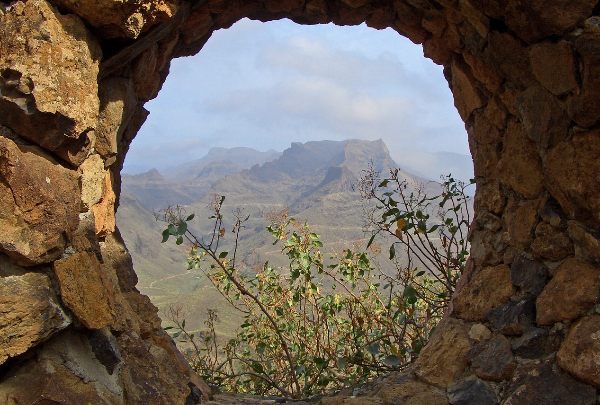Opinion
Rural hope

There has been no more fertile and spontaneous gastronomic movement in this country in recent years than that of the rural chefs.
The day Ferran Adrià hung up his apron, the members of the 'Dream Team' generation who followed him began to make their own living, according to what they saw and felt. The senator from Girona, Joan Roca, the only one called upon to raise the banner, wisely said that "after revolutions comes the time of freedom". And for a moment there was panic among the patriotic culinary hosts, who found themselves without a commander-in-chief. The richness and diversity of contemporary Spanish cuisine has a lot to do with the impulse that propelled it into the international elite, through self-demand and creativity, and the subsequent moment of anxiety that forced everyone to find their own way.
As I said, until the first new gastronomic projects began to mature in the rural environment, the general trend in gastronomic restoration was quite individualistic. Several gastronomic projects linked to the villages were created without a common diagnosis or teacher.Many of these chefs and entrepreneurs did not even know each other. Some wanted to return to the business they had inherited from their families. Others, like so many birds, were thinking of returning to where they came from, abandoning successful careers and the city to build in places where no one had thought to build a house for years. There was talk of an empty Spain, and serious problems loomed that the pandemic had put on the back burner, but these pioneers forged ahead, assuming that the winter weeks would be longer away from the capitals.
A unique event
In 2019, before Michelin invented its green stars and pilgrimages to the gastronomic countryside became a cool experience for the capital's foodies, an event took place in Zafra, Badajoz, that would change the lives of all of us who were there. We called it Terrae, and to build it together we called together many of the restaurateurs who had been working for years, from Asturias to Brazil, through Abruzzo, Tras-os-Montes, Alentejo, Las Palmas de Gran Canaria, Zamora or La Rioja. There we paid tribute to Manolo de la Osa, the man who brought popular cuisine to the highest tables, we cooked for hundreds of locals and, instead of giving lectures, we dedicated ourselves to living together, getting to know each other and reflecting on what we were doing.
This event gave rise to the Zafra Manifesto, which is still in force today, calling for action in favour of the countryside and offering concrete commitments on the part of the chefs, as well as giving rise to a collective conscience on the part of the participants. From that day on, they were aware that they were not alone and that, without knowing it, they were part of a good movement. That they were sharing their worries and problems with many other comrades who were suffering in the same way from the temporary nature of their businesses and way of life, from the lack of media visibility and from the commercial relations they were able to maintain with their neighbours.
Terrae became a meeting of chefs for chefs, and for reasons that are not relevant, including the pandemic, it could not be held again. We organise really important international events, but none of them has ever raised as many questions from chefs over the years as Terrae: "When are you going to do Terrae again?
The wonderful thing is that today we can say several things. Many of the chefs who started out, such as Luis Alberto Lera or Edorta Lamo, to name just the most representative, are opening the doors of Michelin-starred restaurants every day and have become an example to the next generation, who are looking for alternatives to entrepreneurship and dedication to their profession with their own project, something that is becoming increasingly difficult in the big cities.
Terrae returns
Terrae returns from the 28th to the 30th of April, this time in the north of Gran Canaria, in the towns of Gáldar, Arucas, Agaete and Guía, with a growing list of participants and an outstanding guest of honour: Gastón Acurio, the chef who changed the mentality of a country and gave hope and a better life to thousands and thousands of Peruvian peasants.
It hardly took a town crier to fill Terrae. As soon as it became known that the days of rural comradeship, of mutual understanding and help, of collective gratitude to one's neighbours had returned, dozens of people signed up.
As I write, there are more than 40 from Spain, Portugal and Italy, and the list is growing. You will read about the programme and the specific names on other pages. The important thing in this text was to highlight the collective, the strength of the movement that was born spontaneously and has been consolidated with countless awards. Even before the pandemic, it was said: "We are committed to using all the social awareness-raising capacity at our disposal to defend life in the villages and to make the value of rural cuisine known in the cities.













